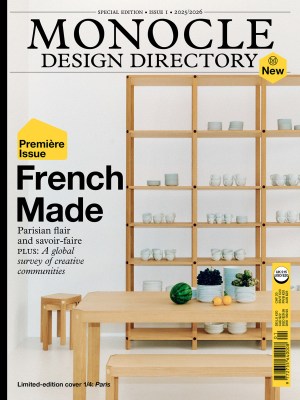
The Entrepreneurs
Monocle is launching a brand new annual, The Entrepreneurs. It’s packed with fresh takes on finding funding, establishing a niche, starting out and moving on. Under the covers we meet industry leaders, visit the alternative business schools and scour the cities that we think you should move to. Whether you’re looking for inspiration, tips on kitting out your office, advice on scaling up a business or the impetus to start over, this is the magazine for you.
In This Issue
Oops! No content was found.
Looks like we no longer have content for the page you're on. Perhaps try a search?
Return Home

